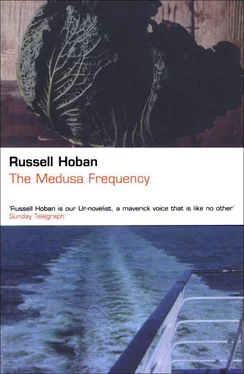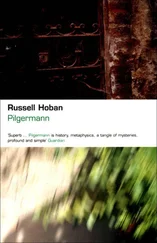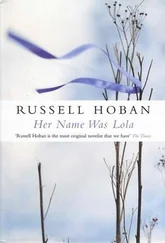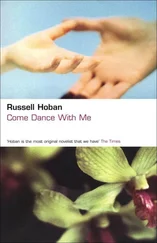Herman, this is from me.
M
I knew what it was before I played it but I played it anyhow.
‘Herman,’ said her voice, ‘I don’t want this to be just words on a piece of paper but I’m too much of a coward to look you in the eye and say what I’m going to say and the telephone is no good either.’
Hearing her voice like that without seeing her there in front of me I found her oddly more real to me than she had been. This was Melanie who was a mystery to me and, as everyone is, to herself, whose thoughts I didn’t know, whose being had its own spacetime and its own world line separate from mine. We had talked intimately, had been lovers briefly, yet her voice came to me as strange and distant as those many voices from far away reflected from the ionosphere and expressed digitally on my radio’s frequency counter.
‘Death is longer than life,’ she said, ‘and the death of each moment is longer than the moment. The goneness is what we’re left with, maybe some of us more than others. It’s very hard to have anything, isn’t it? Like our blue-black shining rainy night, when I call it to mind it’s the going-awayness of it, the goneness of it that I taste. I’ve always been a sort of phoney percy, you see — Persephone more than Eurydice, with my own little dark realm. Or I’m like Rilke’s Eurydike, so full of my large death that I understand nothing. I suppose that’s why I need, how shall I put it, more of a red-pyjama type than you are. I lied to you about General Sphincter’s mistress, I was with Sol that weekend and I was with him the other night when you rang up at three o’clock in the morning to tell him you wouldn’t do the Orpheus thing for Classique. So at least you don’t have to feel guilty about me, I did it to you before you did it to me. Goodbye, Herman. We’ll undoubtedly see each other here and there in the normal course of things and I don’t expect it’ll be awkward. I have a feeling that now you’ll be able to write again, better than before. And it was nice, that blue-black shining rainy night, it really was.’
‘I like the texture of it, Herman,’ said Bill Novad. ‘It’s got the right polypeptides if you know what I mean.’
‘Amino acids?’
‘That’s it: primordial soup and all that. All your really deep comics have it, and if you can’t be deep you’ll never make it in comics. Nnvsnu the Tsrungh gets to me.’
‘I was hoping it would.’
‘How do you feel about the backs of cereal boxes?’
‘As noumenon or phenomenon?’
‘As an art form.’
‘They seem to have fallen into disuse; I remember when they had little stories on them.’
‘Right. They’ve gone with our pre-atom-bomb innocence. We’re living in a time that cries out for the reaffirmation of traditional values. Used properly the back of a cereal box is to literature what Buddy Holly is to music: it’s got drive, it’s got soul, it’s got bebop. Look at this.’ He took a box of Holywell Corn Flakes out of a desk drawer and showed me first the front and then the back of it. They were both the same, with a picture of a bowl of corn flakes and the words CORN FLAKES. ‘Do you believe that?’ he said. ‘Two fronts, no back, you don’t know where you are with it, your whole day starts off funny. Put a comic on one side and that’s the back, you eat your corn flakes and you read it, you know where you are.’ He tapped one of the two fronts. ‘Can you see it right there, THE SEEKER FROM NEXO VOLLMA?’ He said it in capital letters.
‘I can see it,’ I said. I could too: the deeps were a strong purply-blue shading off to black. Nnvsnu the Tsrungh, obscure and amorphous, was a dim blue-green. I could see myself reading it at breakfast, could feel the peace and natural order of it. BONGGGGG, rang the great bell of the deep as Nabilca, responsive to the call of Nnvsnu, plunged down, down, down through green and sunlit waters.
‘And you will see it,’ he said. ‘Slithe & Tovey have just given me the Holywell breakfast line to do: that’s corn flakes, bran flakes, and muesli. I think bran is what we want for The Seeker.’
‘It’s more regular.’
‘It’s your Guardian-reader market. Do a good job on this and you can have the corn flakes as well.’
‘What about the muesli?’
‘No comics on the muesli, just recipes. Can you give me six episodes in a fortnight and six more two weeks later?’
‘What kind of money are we talking about?’
‘Five hundred up front for development, one hundred per episode. Flat fee, no royalties.’
‘Seventeen hundred isn’t much for what they’re getting.’
‘It is when you think of how many guys are trying to break into cereal boxes. Plus you’ll probably do the whole twelve in two nights or maybe even one night. Once you’ve got your original premise it’s a piece of cake.’
‘More like a load of bran. Holywell can have first cereal rights but the characters belong to me and if I do a book or a TV series or a line of toys they’ve got no part of it.’
‘You should be so lucky. I’ll talk to Slithe & Tovey and see what kind of a deal we can do and get back to you later. OK?’
The deeps were gone, the hiss and rush of traffic overran the moving of great waters and the darkness. I was standing by the bicycle shop that was under the offices of Novad Ventures in Gray’s Inn Road. It was like coming out of the cinema, I was blinking in the sunlight. The terror and the excitement slid back behind the screen of everyday and I walked slowly to the underground.
I’d no plans to go anywhere but home but when OXFORD CIRCUS appeared in the train windows I got out and walked over to Hermes Soundways.
Fallok was sitting in his electronic twilight holding a small terrestrial globe, a cheap tin one, badly dented, with no base. Through the closed door I could hear the Hermes music.
‘I never should have let him do it,’ he said as I came in.
‘Let whom do what?’
‘I never should have let Kraken get his head zapped.’
‘Kraken! Do you mean to tell me that Mr Deep Mind himself came to you with art trouble?’
‘How can you joke about it with the poor bastard dead?’
‘Dead! Of what?’
‘Heart attack. I think he may have had some trouble with the head of Orpheus.’
‘What happened?’
‘After our lunch at L’Escargot I was walking slowly back here when I heard a voice speaking to me from a dustbin in Wardour Street and it was the head. I didn’t want to stand there in the street talking to it so I wrapped it up in the Guardian and brought it here. I was surprised to see it on the loose and I rang you up but there was no answer.’
‘I must’ve been in hospital by then.’
‘Anything bad?’
‘Bit of angina. What happened with the head?’
‘I asked it what it wanted and it wouldn’t answer but it began to sing. I was recording the singing when Kraken dropped in and asked me why I had a microphone in front of a perfectly silent tin globe. So I told him about it and then he wanted to get his head done so he could see the head of Orpheus too. We had a session but he didn’t see the head and he asked if he could borrow the globe; I gave it to him and he left. He’d said he’d ring me up to let me know how he was getting on but after three or four days I heard from Hilary Forthryte that he was dead. He was found sitting in a chair with the globe in his lap.
‘Poor Kraken. I doubt that he and the head would have got on very well.’
‘Actually he was a pretty boring guy,’ said Fallok, ‘but I liked his films.’
Читать дальше












